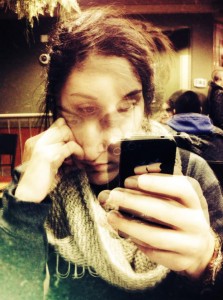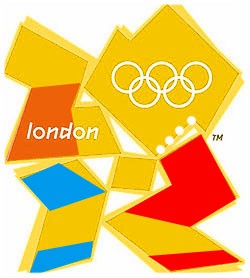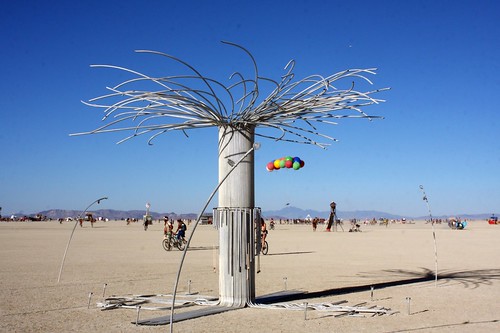Well, since the readings for this week weren’t the most accessible and ‘readable’ I decided to think back to week one and explore another side of censorship.

Censorship was really what stood out to me when thinking about “New Media Laws”. The above photo “Censorship causes blindness” just felt so poignant. Since I remember being one of the first people at my high school to jump on the Facebook bandwagon I can also remember the people who immediately jumped on the issues of privacy. What I recall being the concern then was the clarity of privacy for Facebook users. Still to this day this is an issue… what is the extent of our privacy? How much do we know about our own privacy rules, and how much of our lives have we sold to Facebook? Are they censoring their own sneaky ways of stealing our lives? I apologize as I don’t know where else to go with that one… I recognize that I haven’t read the pagesonpagesonpages of rules and contracts that we all see weekly… but even at 16 was I educated enough to understand what those contracts would of meant? Hell no. Censorship of what we know certainly causes blindness, as the picture suggests. Before the birth of the “Internet-Age” who was protecting our rights? Did anyone really know how? I suppose that’s what we need to consider now…
While censorship certainly causes blindness by deleting visibility I also wonder what other people think of the freedom of too much expression?
As I sit here at home (totally un-censored and enjoying the freedom of my hobbit rooms privacy) I wonder when “bitch” started being ok on public television? Edward Wyatt helps me a little in his article in the NY Times, More Than Ever, You Can Say That on television : “The use of the word, “bitch,” […] tripled in the last decade alone, growing to 1,277 uses on 685 shows in 2007 from 431 uses on 103 prime-time episodes in 1998.” (New York Times, 2009) As I’m sure you can tell from class… I’m a bit flippant as it is… and I totally appreciate this age of dirty-mouthed media because it allows for my potty mouth to be perfectly plausible. In a popular media class I took last year I was able to write a paper on the hit movie Superbad. My favorite part of the paper was being able to quote lines like:
Seth: You need to stop being a pussy and nail her. You could bang her before you leave. And I’m not gonna dance around it, she looks like a good fucker.
Evan: I’m tired of you talking about her like that, man.
Seth: What, you can talk about her all day and if I say one thing its blasphemy?
Evan: Well I don’t constantly insult her.
Seth: I’m not trying to insult her. I’m just saying she looks like a great fucker, okay? She looks like she can take a dick. Some women pride themselves on their dick-taking abilities.
Evan: Dick-taking abilities? You think that’s good to say about someone?
Seth: The fucked up thing is, I actually do, okay?
(Superbad (2007), dir. Greg Mottola)
Is a film like Superbad so offensive that we can’t teach it in schools today? In our entrance essays we were asked to give examples of ways in which we were asked to comment on how todays film, social media, etc. has effected today’s youth. Personally I feel as though we have to embrace the change that is happening in todays world. We can’t be afraid of words such as ‘fuck’ and the crude humor that todays youth live for. I’m trying to suggest using the new censorship laws and embrace the ‘taboo’ nature of these dark comedies in order to help educate. With a closer analysis of Superbad you may notice that the female characters that on the surface level are being objectified actually hold a lot of personal responsibility and power; Superbad teaches youth that kids who drink, party, and make fools of themselves end up in trouble while characters like Jules (the objectified girl) don’t need to drink and can actually turn down guys that are drunk. I feel as though we need to radically update what it is that we use to teach todays youth. If we live in the age of ‘old law’ our students will never learn to be a part of todays society… instead they may understand a world they’ve never been a part of.
When I started this post I really didn’t know what I was trying to say… and I apologize if this has been a bit of a stream of consciousness… but with Girl Talk and Lupe Fiasco as my background ambiance I have radically re-thought what “New Media and the Law” are to me. I think we need to have serious conversations about how we can use each popular culture medium that kids are going home and watching as a learning tool. Over and over we are being told not to reinvent the wheel… but what do we do when wheels have gone virtual?!

This is a photo that I found on Flickr with the note: “This photo was taken for an editorial in The Pendulum about university censorship. Karrah and Garrett were both actors in Elon University’s production of ‘Hair.’ ” Censorship and arts is another topic I didn’t feel I had time to get into… but Katie said she prefers when posts have some visual stimulation. So here you go folks 😉
– Brendan
Works Cited:
Flickr.com: Censorship Causes Blindness, Antoon Foobar’s Photostream. Web accessed on Nov 19th. <http://www.flickr.com/photos/antoon/540693929/>
Flickr.com: Censorship, Heather Cassano’s Photostream. Web accessed on Nov 19th. <http://www.flickr.com/photos/heathercassano/6397100579/>
Superbad, dir. Greg Mottola. Columbia Pictures. 2007
Wyatt, Edward, Media & Television: More Than Ever, You Can Say That on Television: New York Times. Web accessed Nov 19th. <http://www.nytimes.com/2009/11/14/business/media/14vulgar.html?_r=0>





